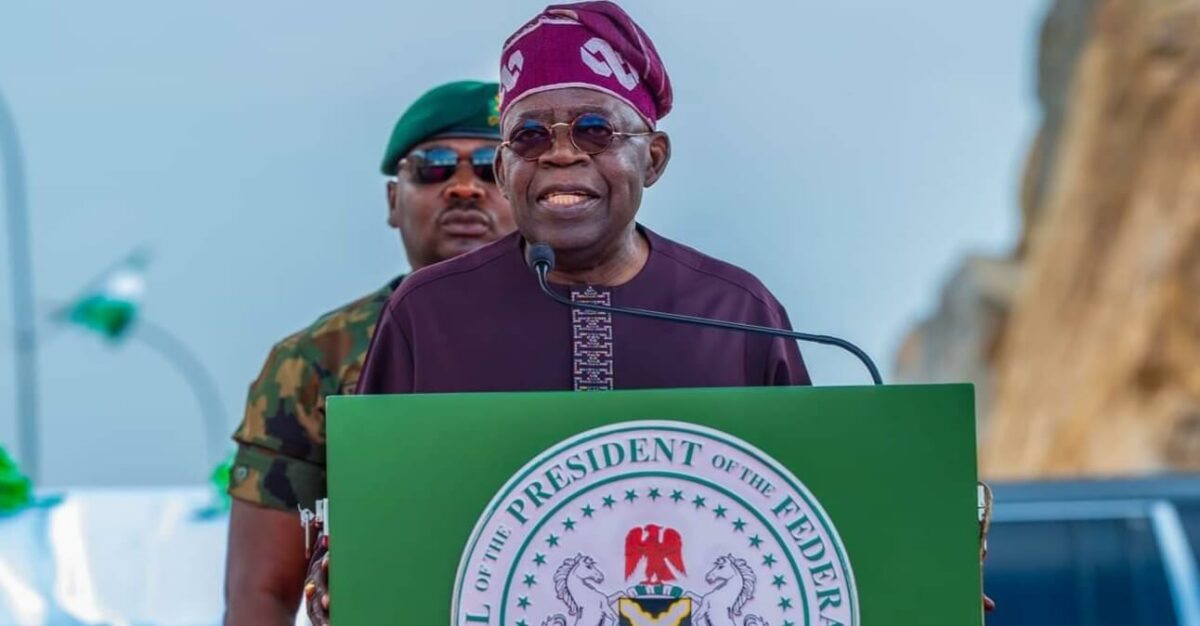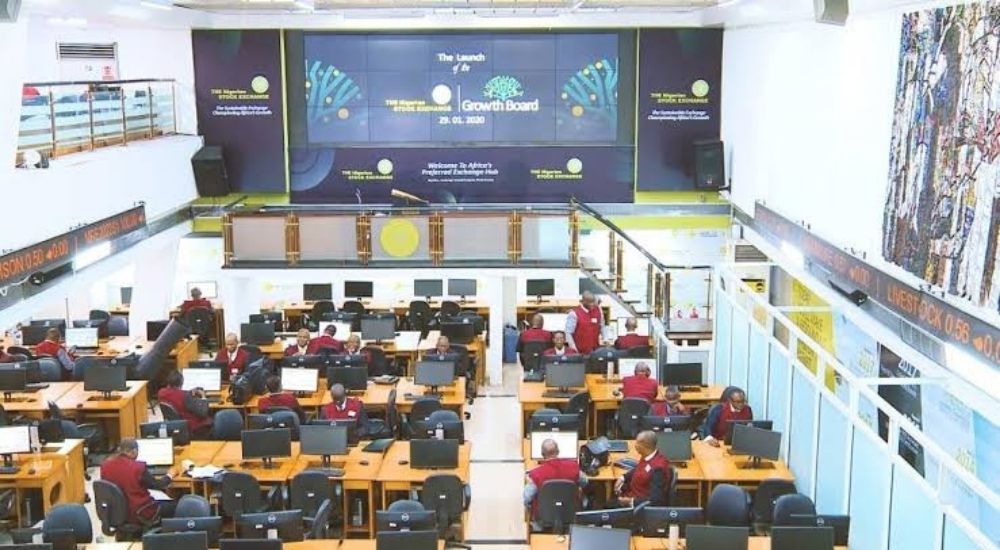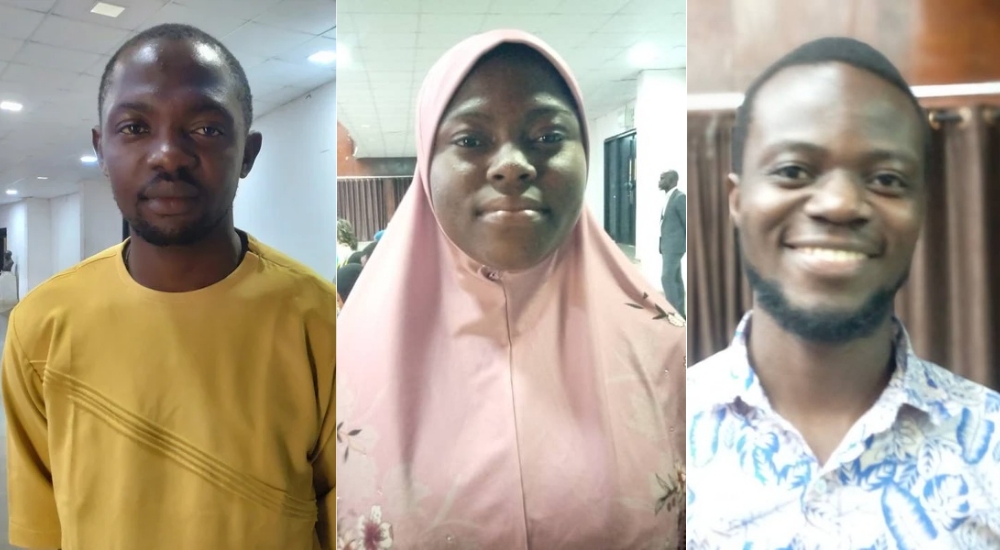Two Years Of Tinubu’s Education Reforms: Progress Or Policy Illusion?

When President Bola Ahmed Tinubu resumed office on May 29, 2023, his administration set out to transform the nation’s education system. Key areas of focus include education infrastructure, accreditation standards and curriculum, teacher training, school management, and technical and vocational education. Additionally, the government planned to restructure tertiary institutions, introduce student loans, establish special education funds, and promote Science Technology Engineering and Mathematics (STEM) Incentives.
One year later, Tinubu’s administration has approved the commencement of the DOTS project to overhaul the education sector, increase enrolment, and ensure the academic security of the nation’s children. DOTS is an acronym representing Data Repository, Out-of-School Children’s Education, Teacher Training and Development, and Skill Development and Acquisition.
The DOTS project aimed to tackle the paucity of coordinated, verifiable, and authentic data in all aspects of the education sector in Nigeria.
According to the then Minister of State for Education, Dr. Yusuf Tanko Sununu, the initiative would enable the Federal Government to track the progress of students, having a clear data-driven mechanism for interventions.
Also, recently, the Minister of Education, Dr. Tunji Alausa, announced a six-point initiative to prioritise in the ongoing efforts to transform and revitalise the education sector in Nigeria.
The six key priority areas are promoting Science, Technology, Engineering, Mathematics, and Medical Sciences (STEMM) education, Reducing the Number of Out-of-School Children, Enhancing Technical and Vocational Education and Training (TVET), advancing Girl-Child Education, Harnessing Data and Digitalization, and Strengthening Quality Assurance Mechanisms.
According to Alausa, these focal areas align closely with the Renewed Hope Agenda of President Tinubu’s administration and are encapsulated in the Nigeria Education Sector Renewal Initiative (NESRI) program. He noted that the main strategic goal is to move Nigeria from a Resource-based to a Knowledge-based Economy.
He argued that there was no policy somersault between the new initiative and the DOT strategy as the DOTS remains intact and is all embedded in the new initiative.
With all these policies in place, what are the impacts in the two years of Tinubu’s administration? The Ministry of Education, led by Minister Dr. Tunji Alausa, said the impacts are many and there for all to see.
Some achievements, Alausa said, include investment of N110 billion to upgrade medical education in 18 universities, with N70 billion allocated for rehabilitation of medical schools.
This, he said, aims to address the shortage of over 300,000 doctors and enhance the quality of medical education.
The federal government has also successfully powered 24 federal tertiary institutions with solar energy and plans to extend clean energy infrastructure to eight additional universities under the Energising Education Project.
Furthermore, the government said it has upgraded 38 federal and state technical colleges, introducing a dual-training model that prioritises practical training. This initiative targets over 650,000 enrollees and focuses on 35 trades identified through industry gap assessments.
Another significant impact, the minister said, is the establishment of the National Education Loan Fund (NELFUND) which the government said is “a beacon of hope for students pursuing higher education.”
According to NELFUND, it has processed over 550,000 loan applications, disbursing ₦56.85 billion to cover tuition fees and provided upkeep allowances for students.
Despite these achievements, stakeholders say they are just a little drop in the many challenges of the sector.
Top of the challenges listed is the inadequate funding of the sector.
Tinubu’s administration had allocated N2.18trn, representing 7.9 per cent of the total budget of N27.5trn, to education in his first year of administration and N3.52 trillion, representing 7.07 per cent of the 2025 national budget in his second year.
These appropriations are still a shortfall of UNESCO’s recommendation for developing countries.
Another source of worry, stakeholders say, is the high rate of out-of-school children in the country.
According to the United Nations Children’s Fund (UNICEF), the number of out-of-school children in Nigeria stands at 18.3 million.
This staggering figure breaks down into approximately 10.2 million children of primary school age and 8.1 million children of junior secondary school age.
The alarming figure positions Nigeria as the country with the highest number of out-of-school children globally, which stakeholders say is a ticking time bomb waiting to explode.
Another source of concern is the industrial action by the unions in the nation’s tertiary institutions, especially the Academic Staff Union of Universities (ASUU).
Although ASUU did not go on strike in the last two years of Tinubu’s administration, the union has been warning of an impending strike if the Federal Government fails to honour the 2009 FG/ASUU agreement.
This is despite the release of N50bn by the Federal Government to the academic and non-academic staff unions of federal universities for the settlement of earned allowances, as promised by Tinubu.
According to the ASUU President, Chris Piwuna, in a recent press briefing, nine critical issues remain unresolved, including the stalled renegotiation process since 2017.
He mentioned withheld salaries from the 2022 strike and unpaid entitlements linked to the contentious Integrated Payroll and Personnel Information System (IPPIS).
Piwuna also criticised the delayed release of revitalisation funds and earned academic allowances due to government inaction.
In spite of promises to inject ₦150 billion into universities and adjust irregular allowances by 2026, he said these commitments remain unfulfilled.
Speaking with THE WHISTLER on Tinubu administration’s performance in the last two years in the sector, National Mobilisation Officer, Education Rights Campaign (ERC), Adaramoye Michael Lenin, said that there was little or no significant impact felt in the sector.
“For us, if you critically look at the policies of Tinubu’s administration and if you equally look at the state of public education itself in the last two years, you will conclude that there hasn’t been significant improvement or something you can call a success story. Rather, what we have is a great decline,” he said.
Lenin attributed the decline to the government’s failure to adequately fund the education sector.
On the Student Loan Scheme, Lenin said it has only served as an excuse for schools to increase fees.
“Instead of a loan scheme, why can’t the government fund the sector properly to ensure that schools have enough resources and students access education at an affordable rate?,” he queried.
The ERC official also highlighted the issue of out-of-school children, saying the problem persists despite government claims of progress.
“The economic crisis is the issue. Some parents think, ‘If I send this child to secondary school, how do I send them to university? Is it not better not to commit funds to even send them at all?’ Anyone who is claiming that it has been reduced is not sincere,” he said.
For him, there has been an increase in the out-of-children and attributing it to the “anti-people’s policies” of the Tinubu’s administration which have made Nigerians even poorer.
“Many can’t even afford to take their children to school. The children have become hawkers and labourers in a bid to help provide for the family.
“More children have been thrown into the street. There are families who were victims of demolitions in Lagos and Abuja. Those who were in schools before are out now due to the problem of accommodation. Society is interrelated. If other sectors like health, environment, housing are down, they affect education too,” he said.
Lenin called for better funding and democratic management of schools, involving students and staff unions in decision-making processes.
“We need to fund the sector adequately. Schools should be managed democratically, and there should be no way students who are stakeholders in their schools don’t know how much their school is receiving and how it is being spent,” he said
He also demanded proper funding for education and policies that prioritize the welfare of Nigerians.
“We want a better life for Nigerians. It goes beyond going to school. If you don’t have a good state of mind, no accommodation, or food to eat, this will affect your learning,” he said.
Also speaking, a lecturer at Dennis Osadebay University, Asaba, Delta State, Austine Akaeze, described the state of education in Nigeria as “chaotic”, stating that the country’s educational approach needs a drastic redesign to fit into the current technological age.
Akaeze believed that the current system is designed for memorisation rather than development, resulting in students receiving worthless certificates that don’t contribute to the new age.
He advocated for a more creative, technical, and less classroom-based approach, leveraging digital platforms for learning.
The lecturer also highlighted the need for functional classrooms, modernised halls of residence, upgraded laboratories, and libraries in universities. He emphasised that lecturers’ pay should be increased, citing low morale due to poor remuneration.
“We are poorly paid considering the volume of work,” Akaeze said. “I have a passion for the job, but my salary can’t take me for a week. I have to go into real estate to survive.”
While Akaeze’s concerns echo the sentiments of many in the education sector, the Senior Special Assistant on Students’ Engagement to the President, Sunday Asefon, disagrees, saying that Tinubu’s investments in the nation’s education sector are yielding positive results.
Speaking recently in Ekiti State, Asefon lauded the president for conceptualising NELFUND and approving the creation of new tertiary institutions nationwide, which he said will increase citizens’ access to university education, thereby justifying his mandate.
“Asiwaju Bola Ahmed Tinubu has justified his mandate by making education easier for students. There was no president since independence that gave students the opportunity to get an interest free loan to attain tertiary education and return it when they start working.
“The President had told our parents not to go and get high-interest loans to send their children to tertiary school, but to get the NELFUND that is interest free and pay when the beneficiary starts working,” he said.
Two Years Of Tinubu’s Education Reforms: Progress Or Policy Illusion? is first published on The Whistler Newspaper





